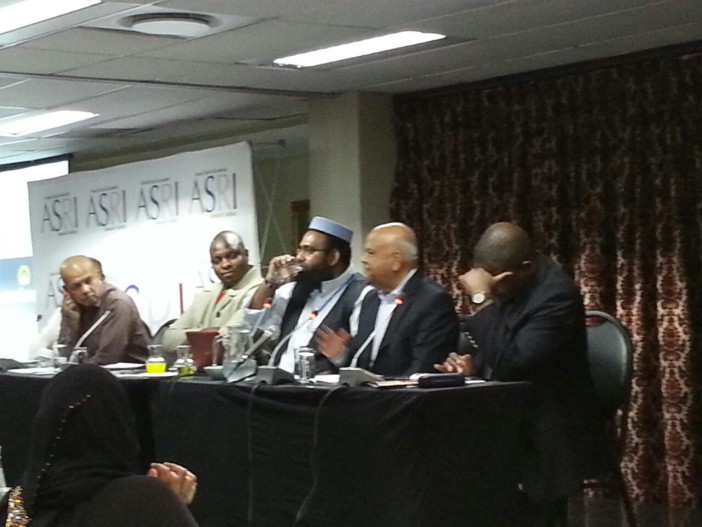Civil society representatives, government officials and business leaders were out in their numbers in Johannesburg this past weekend, as the Auwal Socio-economic Research Institute (ASRI) held the country’s first Muslim Civil Society conference. The event brought together South Africans from all sectors of society, with the aim of discourse on the major issues affecting the country.
The emergence of ASRI has sought to bring something of a focal point through which the Muslim community may discuss domestic policy issues. This comes amidst concern that the community has isolated itself from the broader sphere of South African society, as well as the issues that accompany it. These included areas like education, healthcare, crime, job creation and nation building amongst others.
The main focus of the weekend’s conference itself was the National Development Plan (NDP), which serves as a government established ‘vision’ for the progress of the country, up until the year 2030.
“We have two options; either we engage the documents and proposals government puts on the table, or we reject them and we sit on the side-lines and complain. The approach we took was, regardless of the flaws, we need to move ahead with the positives,” said ASRI executive director, Muhammad Cajee in regards to criticism of the NDP.
He said the institute had sought to draw positives from the NDP that would be of particular appeal to Muslim civil society groups, which they could latch on and contribute to. For those areas of the document they were not in agreement with, ASRI would not seek to internalize or accept them.
Amongst the event’s major highlights saw the EFF’s Floyd Shivambu and former finance minister, Pravin Ghordan partaking in a panel discussion on corruption. Cajee said these sort of diverse views and opinions were what ASRI were seeking to give voice to. He stressed that they were not seeking to have a ‘whitewash’ of government policy, but rather an expression of different views, those outside of Muslim civil society included.
“During the implementing policy panel which was the last one, the head of secretariat for the National Planning Commission said something very important. He said we as citizens always say government should fix things. Government isn’t Pretoria, government is the clinic, school or police station close to your home, and we as citizens have access to those institutions and can make a real change practically,” he explained, stressing that acting locally would eventually see those efforts filter up towards the country’s leadership.
Cajee reiterated the institute were not seeking to be any sort of social or Islamic reform movement, but rather a thing tank on public policy issues.
The contents of the various panel discussions are likely to be made available by ASRI via Youtube. All relevant information can be acquired on their website http://www.asri.org.za/. VOC (Mubeen Banderker)






 WhatsApp us
WhatsApp us 

